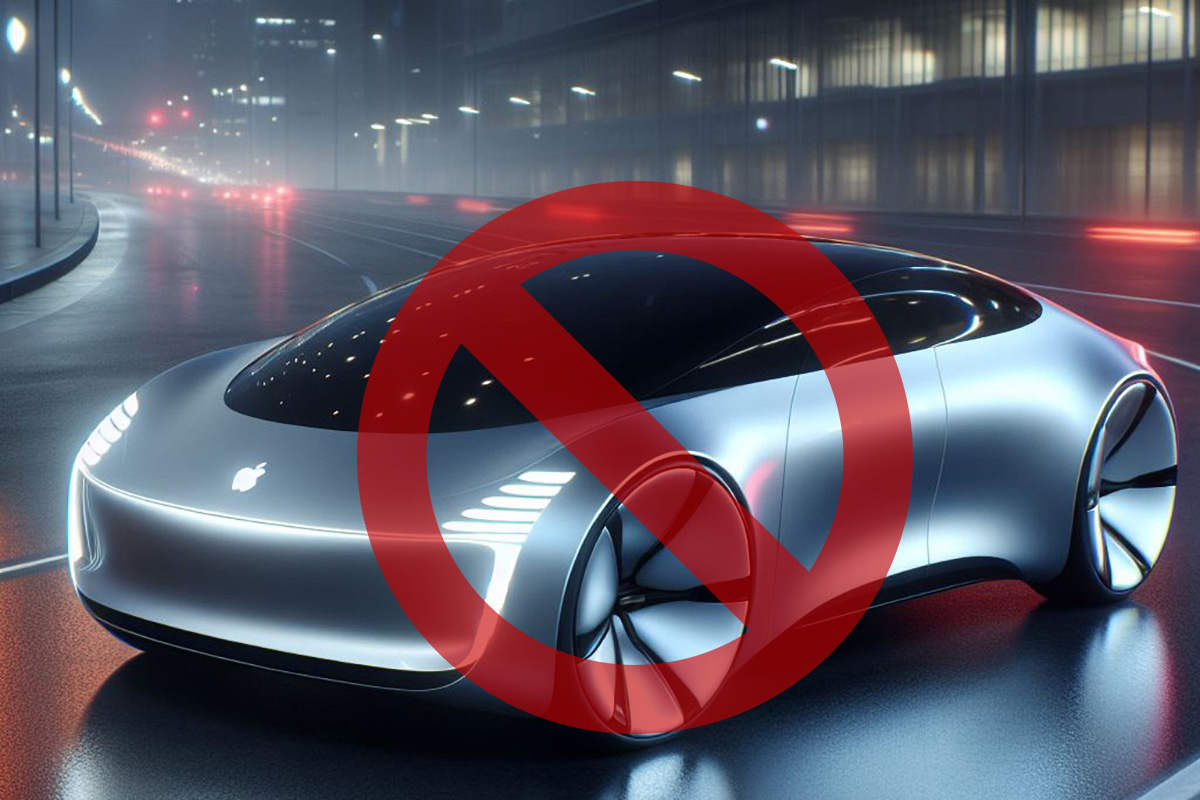
Apple stops developing its own electric car, which it has been working on for 10 years
Apple ends a decade-long effort to build an electric car, according to insiders. Bloomberg’s Mark Gurman says that on Tuesday, the company surprised the 2,000 employees who worked on the project with this decision.
The non-public decision was agreed upon by the company’s Chief Operating Officer Jeff Williams and Vice President Kevin Lynch. These leaders informed the staff that the project was being scaled back. Many employees of the automotive team, known as the Special Projects Group, or SPG, will be transferred to the AI department under the leadership of John Giannandrea. These employees will focus on generative artificial intelligence projects, which is becoming a more important priority for the company.
The Apple Car team also consists of several hundred hardware engineers and car designers. It is possible that they will be able to apply for jobs in other Apple teams. Dismissals are expected, but it is unclear how many will be made.
This unofficial information from Bloomberg was positively received by investors: on Tuesday, Apple’s stock price rose by about 1% to $182.63.
Elon Musk greeted the news with a tweet with emoticons:
– Elon Musk (@elonmusk) February 27, 2024
The decision to finally wind down the project was a bombshell for the company and put an end to the multibillion-dollar Project Titan program, which was supposed to take Apple into a whole new industry. The tech giant started working on the car around 2014, aiming for a fully autonomous electric vehicle with a limousine-like interior and voice navigation.
But the project had problems almost from the very beginning, with Apple changing the team’s leadership and strategy several times. Lynch and Williams took over the company several years ago after the departure of Doug Field, who is now a senior executive at Ford Motor Co.
Apple was many years away from producing a car and was considering many different design options. Autonomous control technology was a serious problem. Apple has been testing its system on the roads since 2017 using the exterior of a Lexus SUV and dozens of cars on US roads. The company also tested more secretive components at the giant Phoenix track that once belonged to Chrysler.
According to insiders, Apple’s top management made the decision in recent weeks. The last decision before that was to postpone the car’s release until 2028 and lower the autonomous driving specifications from Level 4 to Level 2+. Apple once planned to create a car without a steering wheel and pedals, but abandoned the idea. The company also spent time working on a remote command center that could replace the driver.
Under the new arrangement, Lynch will report to Giannandrea. Previously, he reported to Williams, who also led software development for the Apple Watch.
More recently, Apple imagined that the car would cost about $100,000. But management was concerned about whether the vehicle would be able to deliver the profits that Apple typically makes from its products. The company’s board was also concerned about continuing to spend hundreds of millions of dollars a year on a project that might never see the light of day.
Focusing on artificial intelligence may be a better choice, according to Bloomberg Intelligence analysts Anurag Rana and Andrew Girard: “Apple’s decision to move away from electric cars and focus on generative artificial intelligence is a good strategic move, in our view, given the long-term profitability potential of AI revenue streams compared to cars.”
Apple is facing a cooling of the electric car market. Sales growth has slowed in recent months, with high prices and a lack of charging infrastructure preventing ordinary buyers from switching to all-electric vehicles. General Motors and Ford are trying to produce more hybrid cars after facing weak demand for electric vehicles and production bottlenecks. Other automakers are significantly reducing prices for electric vehicles, production plans, and profit forecasts.
Tesla, the pioneer of the electric car revolution in the United States, has warned that its expansion rate this year will be significantly lower. According to UBS AG, the growth of domestic sales of electric vehicles will slow to 11% this year from the 47% projected for 2023.

